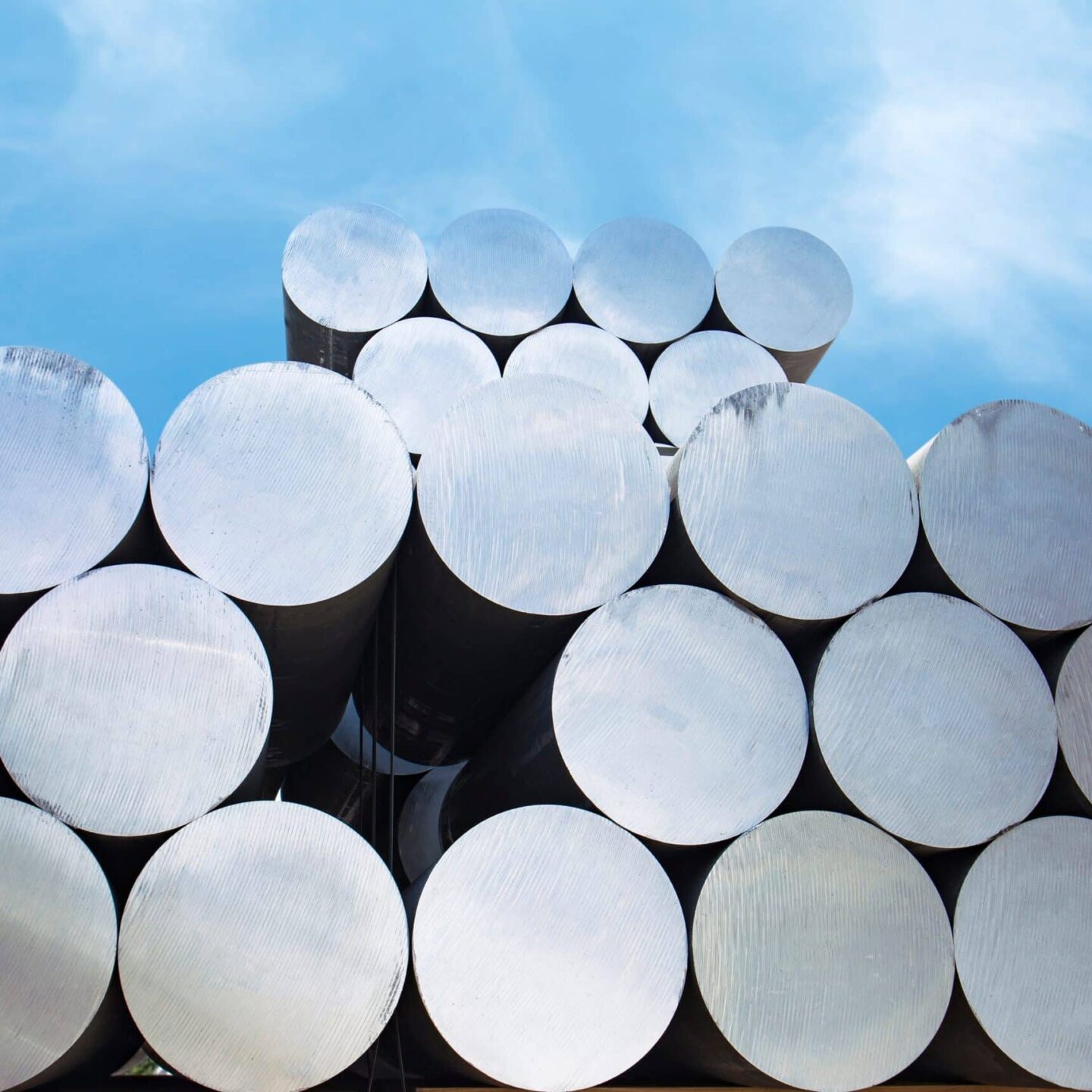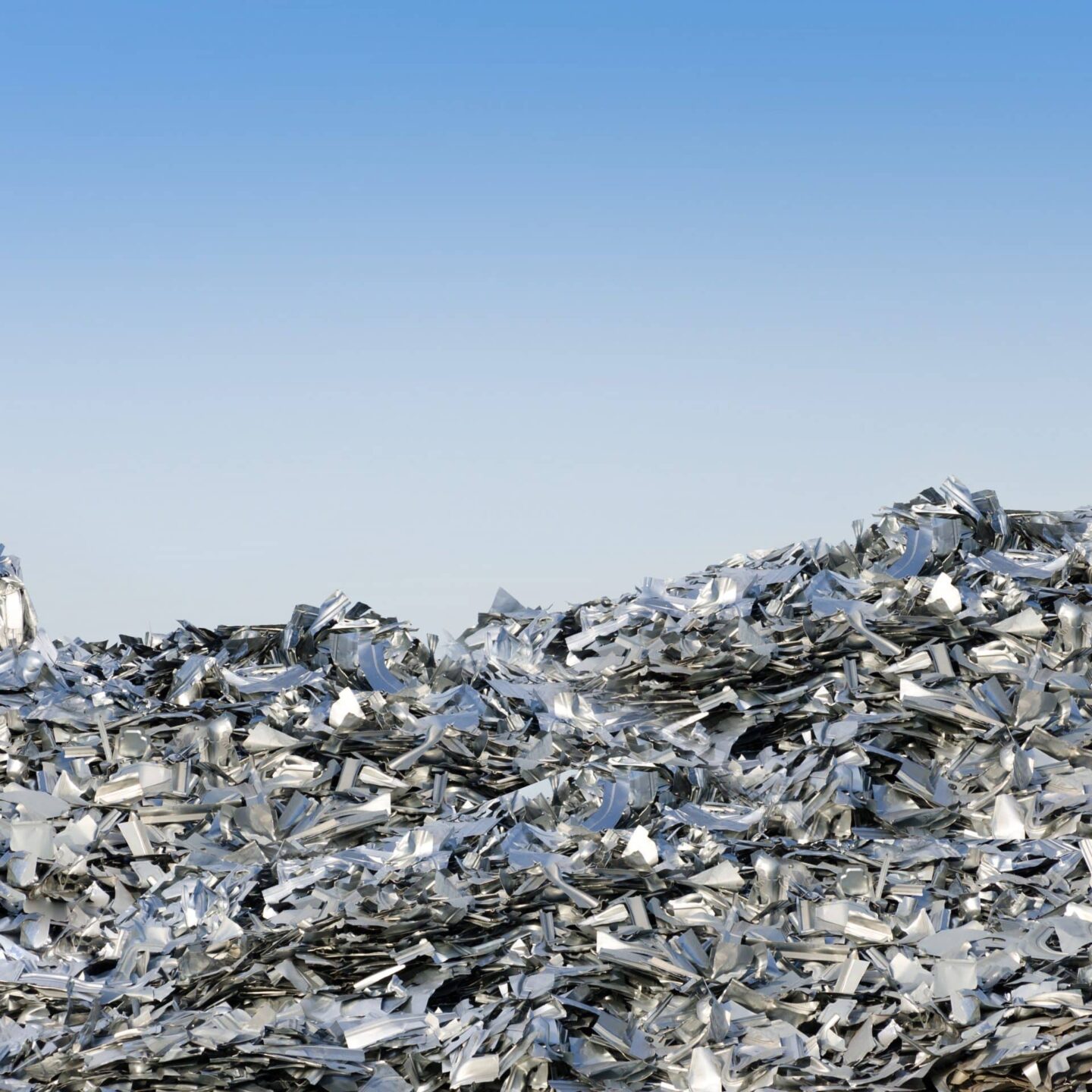A new factsheet from the International Aluminium Institute (IAI) highlights the circular potential of aluminium beverage cans, showing its leadership in closed-loop recycling, and how much further they could go.
The report, “Can-to-Can Recycling: Performance, Potential and Pathways”, compares real recycling rates, can-to-can recycling performance, and the fate of cans not returned to the cycle. It finds that while 71% of aluminium cans placed on the market are recycled, only 33% are made back into new cans, leaving significant untapped potential.
Key findings
- Aluminium cans lead globally: 33% (140 billion cans) are recycled back into cans — versus 7% for PET and 20% for glass.
- Capacity for higher closed-loop rates: 87% of all recycled cans could be turned back into cans today without changing alloys or remelter operations — yet only 47% currently make that journey.
- Downcycling remains a challenge: More than 20% of cans are used in products like engine blocks, where incompatible alloys prevent return to the can cycle.
Pathways to 2050
The factsheet models three scenarios:
- Business as usual (33% can-to-can): 420 billion cans recycled would yield 207 billion new cans by 2050.
- Improved practice (62% can-to-can): Raising closed-loop recycling from 47% to 87% could generate 685 billion cans.
- Full circularity (95% can-to-can): With near-100% collection, compatible alloys, and high-quality scrap, nearly six trillion new cans could be produced from the same input.
Achieving this transformation requires high collection rates, clean UBC scrap, recycling-friendly alloy design, and global policies to minimise contamination and scrap leakage.
Marlen Bertram, IAI Director of Scenario Forecasts, said:
“This analysis shows that aluminium cans aren’t just recyclable — they’re a blueprint for circularity. But true circularity demands more than collection. It eventually requires smart alloy design, clean recycling streams, and infrastructure that keeps valuable materials in play.”
Regional insights
- United States: World-leading 97% closed-loop rate, but overall recycling is just 43%.
- Thailand: Strong performance with 72% of cans returning to cans.
- Vietnam: Lowest can-to-can rate, hindered by export duties and missing infrastructure.
A global call to action aims for 87% of recycled aluminium cans to be returned to can production, maximising both material and economic value worldwide.
The potential of improved circularity of aluminium beverage cans will be central to two panel sessions hosted by the IAI at New York Climate Week. In one session on 25 September 2025, a panel of industry experts will explore where the industry is on the journey to a circular value chainwhile a second panel will look at the topic specifically in the light of investments, policy and technology.
GBCCA Member Quotes:
Midori Narita, Executive Officer, the Leader of the Corporate Sustainability Promotion Division of UACJ group said: “Material circularity is becoming essential across all regions and industries. The UACJ Group is investing in recycling facilities in Japan, Thailand, and the United States to expand our capacity to use used beverage cans (UBCs) as raw materials. On the technology front, we have successfully developed a new high-recycled-content alloy for the “Eco-End,” further enhancing the sustainability of beverage cans. UACJ Group will continue advancing both facilities and technologies to help realise a society where aluminium can be utilised infinitely.”
Francisco Pires, Senior Vice President and Chief Strategy and Sustainability Officer, Novelis, said: “Today’s aluminium cans are helping beverage brands meet sustainability goals for recycled content and greenhouse gas emissions. If a used beverage can is kept out of the landfill and is instead recycled, it can become a new can in less than two months, making aluminum beverage cans one of the most efficient examples of circularity in packaging. As a world leader in aluminum recycling – including recycling more than 84 billion UBCs annually, Novelis continues to invest in new recycling capacity and capability to further maximize the environmental and economic value of every can.”
Dorothea Flockert, Head of Group Sustainability & ESG Reporting of Speira, explained: “As member of the standardization project of EUROPEAN ALUMINIUM’s Packaging Group, Speira thrives to push the beverage can’s recyclability to 100 percent. Besides, we digitize the circular economy: With speira.ID, we create a product passport that provides full transparency about every cast batch, every rolled coil and every product manufactured from it. A detailed proof of origin is created on the basis of digital data: what is in it – pre- and post-consumer scrap, primary aluminium, alloy additives from recycled or primary sources? What is the ‘carbon footprint’ of each of these ingredients? And finally: what is the specific ecological footprint of each kilogram of aluminium product?”
Abdulnasser Bin Kalban, Chief Executive officer of Emirates Global Aluminium, said: “Despite being the world’s most recycled material, with three-quarters of all aluminium ever produced still in use, too much aluminium is still lost to landfill instead of staying in circulation to make modern life possible. While more than 660 million aluminium cans are consumed in the UAE every year, only a third are recycled. This gap highlights the urgent need to expand recycling infrastructure and foster collaboration with regional can makers and waste management firms to accelerate recycling rates, boost the circular economy, and reduce greenhouse gas emissions.”
Sandrine Duquerroy-Delesalle, Vice President of Global Sustainability & External Affairs at Crown Holdings, Inc. said: “Crown has long served as a champion for the circular economy and the importance of higher beverage can recycling rates. Our work across the value chain continues to aim for greater collection through policies like deposit return schemes (DRS) and extended producer responsibility (EPR), as well as through investments in sorting technology and consumer education programs. These initiatives are allowing us to make progress on closing the gap identified in our new fact sheet and ultimately strengthening our industry’s overall sustainability performance.”
John O’Maoileoin, Group Sustainability Director for CANPACK Group, said: “I’m delighted to be part of this year’s New York Climate Week, representing not just CANPACK but a fantastic industry driving real change. Aluminium beverage cans are infinitely recyclable, retaining their quality each time they re-enter the cycle. This makes them a true driver of circularity—keeping valuable materials in use and waste out of the environment. By choosing cans, we accelerate the transition to a more sustainable, resource-efficient future for people and the planet.”





